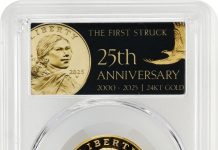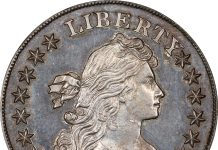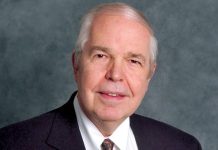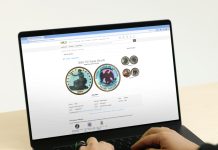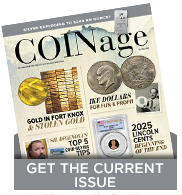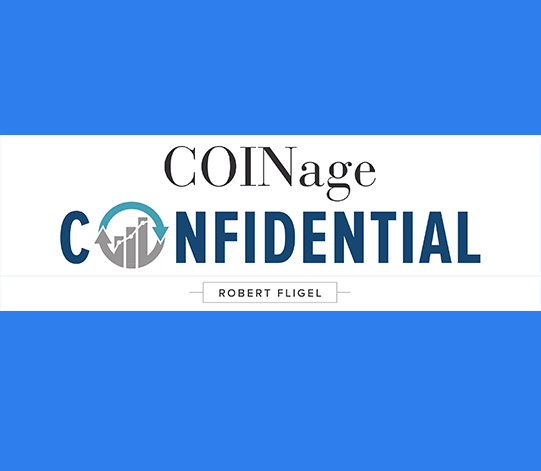
For more than 15 years, Robert Fligel, a widely recognized and distinguished name in accounting circles, has pursued a serious involvement with rare coins and precious metals.
His interests have their roots from his childhood in North Carolina when he collected coins from pocket change. His casual accumulating gradually grew into a more serious pursuit.
Fligel’s new business, RF Precious Metals, LLC (online at RFPreciousMetals.com), will assist collectors and investors in sourcing and obtaining rare coins and other numismatic material.
“I bring to this new venture the same low-key, fact-based approach that has defined my professional career, which I think sets me apart from others in the coin field,” Fligel told COINage.
He says that his numismatic business is a “new sideline,” and that his core business remains helping Certified Public Accountants and CPA firms with their growth and succession goals.
Fligel is a graduate of the University of North Carolina at Chapel Hill and began an accounting career providing audit and tax services at a New York City CPA firm. He went on to become an audit manager at a Fortune 500 firm, associate at a national search and recruiting firm, and director of human resources for a “Big Four” accounting firm.
In his first go-round at entrepreneurship, Fligel co-founded what would become one of New York’s largest and most successful executive search firms. In 2004, he launched RF Resources. He is an active member in the New York State Society of CPAs, the National Conference of CPA Practitioners and other professional organizations.
Over the course of his career, Fligel has placed many partners and senior professionals in CPA firms, Fortune 500 and privately held companies, and consulted on numerous firm mergers and acquisitions.
COINage: What motivated you to form RF Precious Metals, LLC?
Robert Fligel: Turbulent national and international economic developments have led me to turn a serious personal interest into an additional advisory business, RF Precious Metals, LLC.
With this new venture, I am sharing my knowledge of acquiring and deploying various forms of precious metals, primarily gold and silver, to guard against potential adverse events as well as provide an additional measure of enduring value to any portfolio. I have always believed it was prudent to have a small percentage, maybe 5% to 10% of investable assets, in alternative asset classes. Precious metals fit that bill well and can be used with the proper professional guidance in IRAs, too.
I was fascinated to watch as the price of gold increased from just over $600 per ounce to nearly $2,000 per ounce during the post 2008 recession. Yet the amount of gold needed to acquire assets, such as a car or house, has actually remained constant for years while the value of the U.S. dollar has shrunk over 90% since the creation of the Federal Reserve Bank in 1913.
Economic red lights have been flashing for me for months, even more so than during the recession of 2008. We survived that massive downturn, but only with an enormous monetary infusion and bailout of Wall Street and the big banks. Sorry to say, but nothing fundamentally has changed. Long-term, I am an optimist, but the upcoming years will be turbulent.
CA: What is your favorite area of numismatics, either to collect or invest in?
RF: First and foremost is the historical significance and aesthetic value behind the coins.
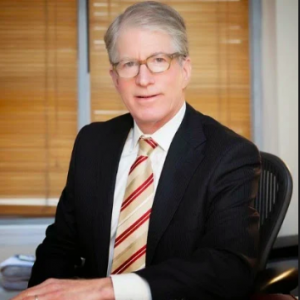
That is the passion which holds true for all in the numismatic profession.
This has been a lifetime evolution which started as a child at around 14 years old collecting coins from pocket change, watching my father faithfully ordering the traditional U.S. Mint and Proof Sets, and then moving forward to the ubiquitous Whitman coin albums and bank and grocery store coin roll sleuthing. When I graduated from college, with what little money I could spare, small silver bars and currency were a fascination.
For the past 15 or so years, I have been a big fan of U.S. double eagle gold coins for their numismatic and bullion characteristics, high-grade early gold, Trade dollars, and special coins: generally MS-65 or better certified coins in older holders – usually with stickers from the Certified Acceptance Corporation (CAC).
CA: Why would someone want to take possession of a physical precious metal when an Exchange Traded Fund (ETF) seamlessly facilitates the purchase and sale of the selected metal?
RF: Physical possession of precious metals is paramount. Yes, it does involve more work than placing an order for an ETF such as care of the assets, external storage, and insurance, but that controlling one’s destiny is incredibly important. 1111
There is always the concern of whether the ETF is completely backed by metals, potential credit, and counterparty issues. And for most involved with precious metals, portability and privacy issues are a significant factor.
CA: The hobby and science of numismatics has a graying population, and very few young people are entering the field. What needs to be done to expand and grow the hobby?
RF: This is true in almost all industries and professions. I have seen it firsthand for over 35 years in the CPA profession: the ebbs and flows of the number of accounting graduates, the cyclical allure of tech, Wall Street and other fields pulling budding talent away from CPA firms and few young CPAs starting their own firms.
The world is so different now because of technology and smart phones that young people generally don’t have the time or family role-modeling that might be conducive to considering the numismatic profession.
On the other hand, the growing concerns about big government, fiat currency, wealth redistribution, and cryptocurrency, to name a few, may propel more toward the value of rare coins and precious metals as a store of value.
CA: What organizational affiliation are you most proud of? Please explain.
RF: In the numismatic world, it is far and away being a CAC-authorized dealer. I have been a buyer and seller of CAC coins since its inception, and I have the greatest respect for CAC founder John Albanese and his integrity, honesty, knowledge, and leadership of this fine profession. I am honored to now be a CAC-authorized dealer and work with him.
Close behind CAC are CPA organizations: The New York State Society of CPAs and the Accountants Club of America (I am a past president). CPAs are still very highly respected, and it has been my calling for over 35 years.
My father was a CPA in North Carolina and started his own firm, which ultimately merged into a New York City firm. The values I saw from him clearly became part of me: an unfailing sense of ethics and integrity and the importance of being an independent advisor and friend.
CA: What is the future of coin shows and conventions?
RF: The future of coin shows is limited due to the continued growth of technology. Many attend to see their longtime and valued colleagues and collector friends as much as they attend to make deals.
CA: How would a cashless world affect coin and bank note collecting?
RF: A cashless society would be bad for the numismatic collecting area. The record shows that obsolete currency and notes are less collected and, therefore, less valuable.
The good news is that I don’t see this happening in my lifetime or in the lifetimes of my children and grandchildren.
CA: Has Bitcoin become the new gold coin and funneled billions of dollars from the coin marketplace?
RF: There is room for both. The old-school, yours truly included, will always opt for physical assets. Bitcoin is still too speculative for a long-term view, but it is indicative of a worldwide movement or disaffection toward fiat currencies and budget deficits.
CA: Does the United States Mint help or hurt the rare coin marketplace?
RF: On the one hand, Mint sales and ad campaigns create a stirring of interest that sometimes spill over into the numismatic hobby arena. On the other hand, Mint sales siphon billions of dollars from collectors of vintage rare coins. Bottom line: The U.S. Mint is of limited usefulness despite its very aggressive marketing for its many modern issues.
CA: What is the future of precious metals trading?
RF: Precious metals have been around for centuries, and I expect that to continue. It will no doubt evolve as the baby boomers and other generational groups retire and liquidate or pass on their holdings and the huge uncertainly about governments and control resolve themselves. Gold and silver have been part of commerce and life almost forever, and I cannot imagine that going away.


